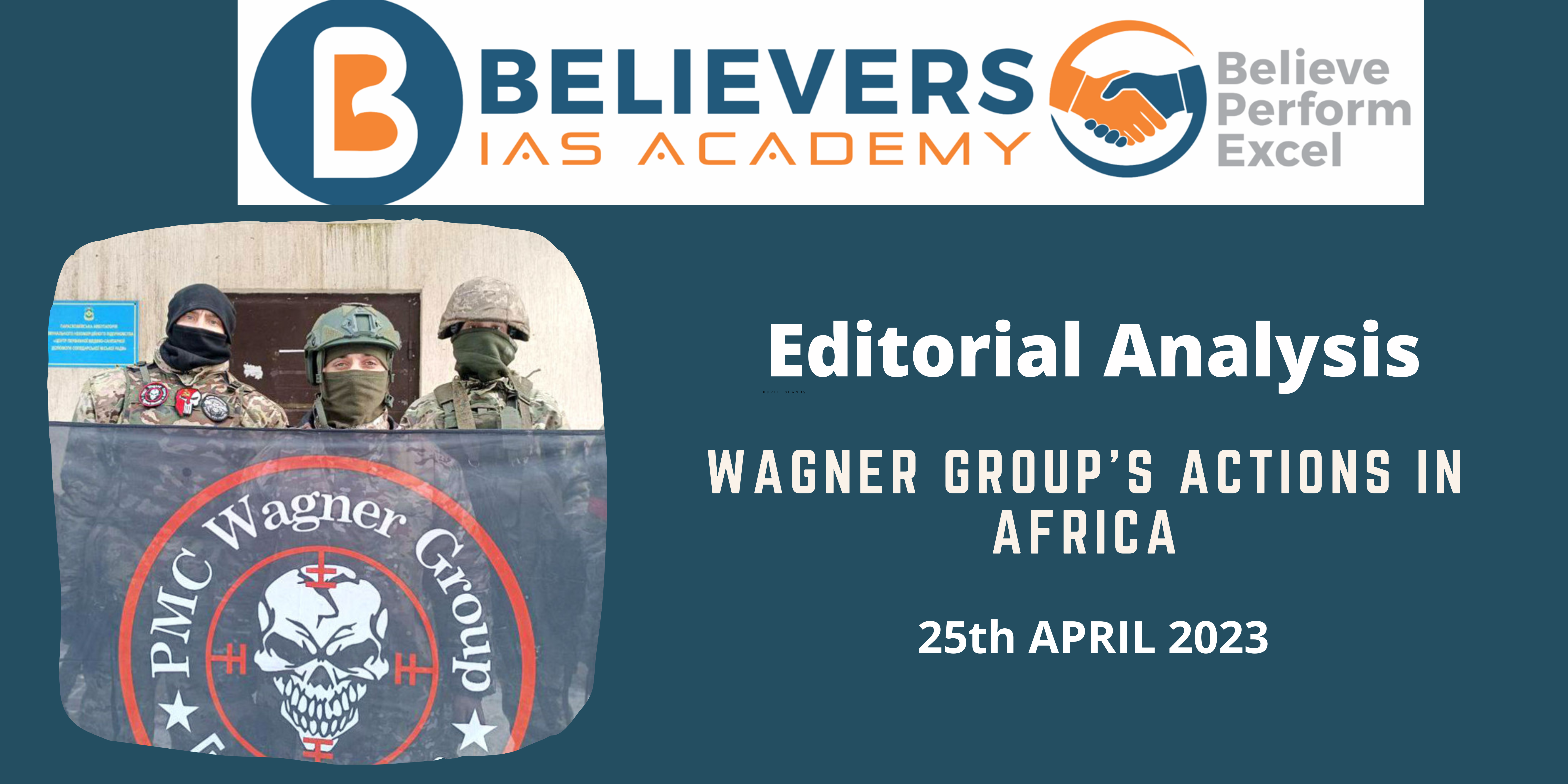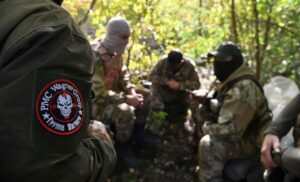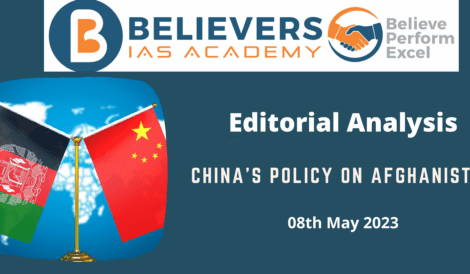Wagner Group’s Actions in Africa
Context:
- Yevgeny Prigozhin leads the Wagner organisation, a Russian paramilitary organisation. Though it has purportedly been involved in counter-militancy activities in Africa, its role is thought to include political, economic, and military spheres.
- In Africa, the Wagner group has worked in Sudan, Mali, the Central African Republic, Mozambique, and Libya. It offers itself as a security contractor to a few African regimes, primarily autocratic.
- According to a June 2021 UN report, private military forces, “particularly the Wagner Group,” have aggressively harassed and sexually abused civilians.
Points to Ponder(From Newspaper):
- The Wagner group is a Russian paramilitary organisation led by Yevgeny Prigozhin that is active in African politics, economics, and military affairs.
- The organisation operates in Sudan, Mali, the Central African Republic, Mozambique, and Libya, providing security services, assisting authoritarian governments, and exploiting natural resources.
- The Wagner group’s primary goal in Africa is to gain access to natural resources, use the group as an instrument of diplomacy, and provide crucial financial support to continue the war in Ukraine.
- The group’s presence in Africa poses threats to democratic governance, human rights violations, and increasing authoritarian footprints across the continent.
Wagner
- The Wagner Group initially surfaced in Ukraine in 2014, during the annexation of Crimea. In 2014, the group fought alongside Russia-backed rebels in Ukraine’s Luhansk area. The gang was allegedly created by Dmitriy Valeryevich Utkin, a veteran of the First and Second Chechen Wars.
- According to Russian and Western analysts, the organisation does not exist as a private military firm, but rather as a disguised arm of the Russian MoD that ultimately reports to the Russian government. The corporation shares bases with the Russian military employs Russian military planes for transportation and utilises Russian military health care facilities. The Russian government has also been documented as providing passports to the Wagner Group.
- The Wagner group is also filling the hole left by the withdrawal of French forces from Africa due to anti-French sentiments. The Wagner group trains local soldiers and offers security services in Mali to combat terrorist groups. The deployment of Wagner in Mali was followed by a deterioration in France-Mali ties and the conclusion of France’s Operation Barkhane.
- Burkina Faso might play a similar role to the Wagner group. The country is working with the Wagner organisation to combat rising terrorist violence. Burkina Faso, like Mali, turned to Moscow after publicly proclaiming the end of the French operation in November 2022.
- Around 1,200 Wagner mercenaries are thought to have fought for rebel leader Khalifa Haftar in Libya. Libya saw a civil war for the length of the 2010s before a precarious ceasefire.
Goals of the group
- The group’s principal purpose is to acquire access to natural resources. Russia’s goal is to gain access to Africa’s abundant natural riches. One of the techniques for achieving this goal for the country is the Wagner group’s presence and moves.
- Second, Russia regards the Wagner group as a diplomatic tool in Africa. The Russian policy in Africa has a low economic cost but a high political payoff. In the UN resolution denouncing Russia’s aggression in Ukraine, Moscow obtained 15 abstentions from African countries. Furthermore, Eritrea and Mali joined Russia in voting against the measure.
- Finally, Russia’s access to African mineral riches is said to be providing critical financial support to Ukraine’s war effort. Strong links with African countries are a conduit of influence for Russia’s assault on Ukraine.
Problems of having PMCs in a country
- Lack of accountability: Because PMCs are not subject to the same laws and regulations as military personnel, holding them accountable for their conduct can be difficult.
- Human rights breaches: There have been reports of PMCs being accused of human rights crimes such as torture and extrajudicial killings.
- Conflict of interest: PMCs may put their financial interests ahead of the interests of the country in which they operate. As a result, they may prolong wars or take acts that are not in the best interests of the country.
- Undermining government authority: Hiring a PMC by a private entity or another country may jeopardise the authority of the government and its military forces.
- Lack of openness: Because PMCs are private, there may be a lack of transparency in their operations, making it harder to oversee their actions and verify they are functioning under the law.
Similar Topics
Russia’s Invasion of Ukraine & Its Impact on the World




